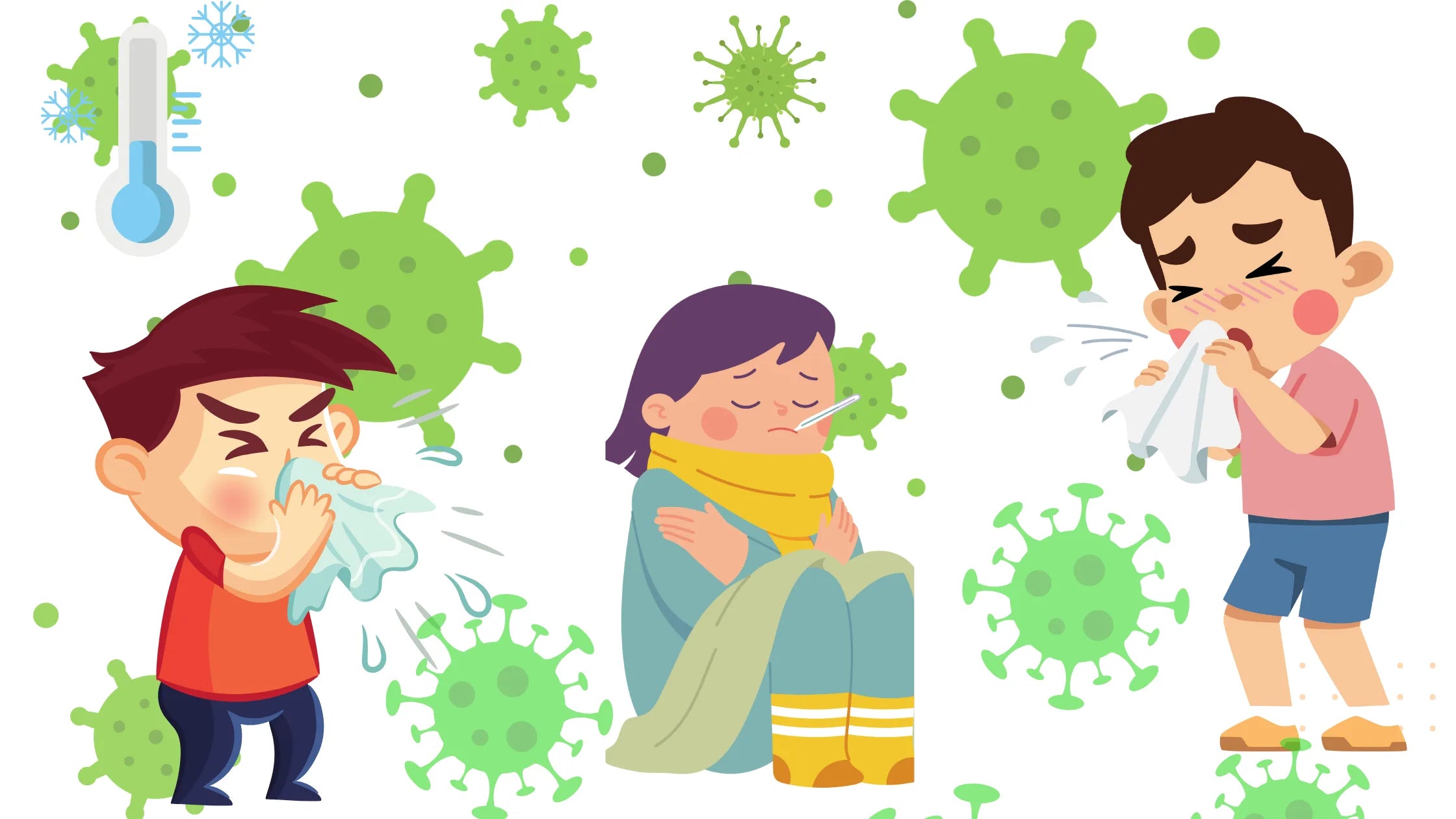Understanding Immune System
Understanding the immune system and immunity is crucial for protecting yourself from illness, especially during cold and flu season.
What is the immune system?
A vast network of cells, tissues, organs, and the chemicals they produce that help the body fight infections and other ailments. The immune system acts as a protective layer for your body. It protects you from bacteria and viruses. It contains several components, such as white blood cells, that work together to keep you healthy.
How does immunity fight with colds and flu?
The immune system combats colds and flu by identifying and destroying foreign invaders using cells, proteins, and other substances. There are two forms of immunity: innate and adaptive. Innate immunity is the body’s initial line of protection. It responds fast to pathogens. Adaptive immunity takes longer to respond, but it establishes a memory of the germs, allowing your body to fight them more effectively next time. It’s the body’s initial line of defence, which includes physical barriers like skin and secretions like mucus, stomach acid, and enzymes in saliva and perspiration.

Essential Lifestyle Practices To Strengthen The Immune System
Sleep Quality And Immunity: Getting enough sleep is very important. One must sleep for 7-8 hours. The CDC suggests that sleep deprivation can harm several aspects of the immune system, resulting in various illnesses.
Physical Activity: Regular exercise improves mood and sleep quality and reduces worry. When combined with proper nutrition, physical activity can aid in maintaining a healthy weight. The CDC notes that being physically active may reduce your risk of dying from the flu or pneumonia and boost immunity.
Stress Management Stress can reduce your immune response, making it more difficult for your body to fight illnesses. Stress and stress are not effective germ fighters. Anxious thoughts can decrease your immune response in as little as 30 minutes. Constant stress takes an even more significant toll, making fighting off the flu and other illnesses more difficult.
Nutritional Strategies To Support Immunity
- Vitamin-rich foods: Eating fruits and vegetables helps deliver essential vitamins. Oranges and strawberries are good sources of vitamin C. Zinc may be found in nuts and seeds. According to research, taking Vitamin C daily can help minimise the length and intensity of colds.
- Hydration: Hydration is the key. Drinking water helps remove toxins from your body, contributing to a more robust immune system. Aim for about eight glasses of water daily.
- Gut health and immunity: A healthy gut is associated with a robust immune system, which can help guard against the flu and other infections. The gut contains around 70% of the immune system. Microbes in the gut play an essential role in maintaining a healthy immune system capable of combating dangerous bacteria and viruses. Eating food like yoghurt and kimchi can help.
Seasonal Self-Care Habits
- Hygiene practices: Wash your hands often, especially before meals. Avoid touching your face to prevent the spread of germs.
- Seasonal adjustments: As the weather gets colder, eat healthy and exercise regularly to keep your immune system strong.
- Social precautions: If you have flu, avoid crowded places or wear a mask to prevent the spread of germs.

Signs Of A Weakened Immune System
A weak immune system can induce a variety of indications and symptoms, including:
- Frequent Infections: You may feel sick frequently, with colds, the flu, or other diseases. You may also need to take antibiotics more than twice each year.
- Fatigue: You may always feel weary, even after getting adequate sleep. This is because your body is expending energy to power its immune system.
- Hair loss: You may notice patchy hair loss or red or white patches on your skin. This might be an indication of Alopecia Areata.
- Digestive issues: difficulties include bloating, diarrhoea, gas, discomfort, and constipation.
- Slow healing: Wounds may take longer to heal.
Learn more about Vitamin C for Wound Healing: Accelerating Recovery Naturally.

Supplements To Boost Immunity
People take vitamin C, zinc, and elderberry supplements to prevent colds and flu.
According to the National Center for Complementary and Integrative Health (NCCIH), zinc may help decrease the duration of a cold when taken early.
Supplements like Route2health Fluace are the best for fighting seasonal flu and colds. They contain Echinacea and elderberry, which can help boost immunity and fight infections.
Conclusion:
Precautionary steps are crucial to staying healthy during cold and flu season. From protecting oneself to covering oneself and eating a diet full of immunity-rich food, these help prevent the flu and cold season. Supplements like zinc or Route2health Fluace help boost immunity and protect you from illness.

FAQs
Which foods boost immunity against the flu?
Foods like citrus fruits, spinach, almonds, papaya, and green tea help build immunity against flu.
Which drinks are good for immunity?
Drinks with vitamin C, such as orange, pineapple, and grapefruit juice, help build immunity and hydration.
Does having hot drinks increase immunity?
Hot drinks like lemon water with honey or green tea can enhance immunity as they have immune-boosting and anti-inflammatory properties.
What kills the flu virus?
Hot temperatures kill virus-like flu. The flu virus is destroyed by heat between 167–212°F (75–100°C), so if you clean your sheets and towels, use the hot temperature setting instead of warm.
How long does the flu last?
Usually, flu symptoms vanish in 4-7 days, but the cough and tired feeling may last for weeks.
Learn more about The Role Of Diet In Managing Cough: Foods To Eat And Avoid























































